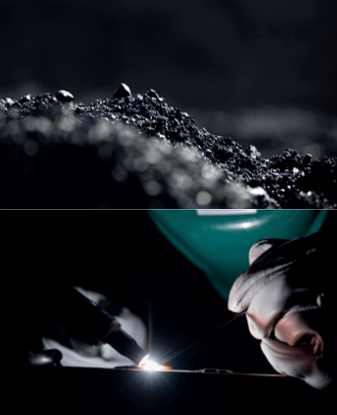FUELSEA
Anodine a FUELSEA brand


Benefits
- Substitution of scarce resources
- Reliability
- Expertise
- Made in France
Key words
- Electrode
- Electrolysis of water
- Electrochlorination
- Anode
Intellectual Property
- 2 patents
Partnerships & Rewards
- 2022 French Deeptech PhD Competition Winner
- 2023 French Deeptech Innovation Competition Winner
- Région Auvergne-Rhône-Alpes
Laboratory
- DCM
Institutions
- CNRS
- UGA
Linksium Continuum
- Maturation
- Incubation
- Acceleration
Results
- Incorporated startups
Context
Electrolysis for water treatment and the production of green dihydrogen are being promoted by many governments. The development of electrodes that save resources and are more reliable is one of the major ways of achieving the transition objectives.
Technology
FuelSea's technology is based on 2 patents that enable the use of platinum resources in electrode manufacture to be reduced by 50%. This technological advantage will enable the development of automated production tools to reduce electrode failures.
Advantages
FuelSea has positioned itself as a premium electrode alternative with the same technical characteristics (performance, service life) as those already on the market. The value proposition is to increase electrode reliability with a guaranteed failure rate of less than 1%.
State of progress
Electrodes available in the laboratory:
- Durability validated by accelerated degradation tests over 2500 hours of operation.
- Coating deposited on electrodes from 3 to 50 cm².
Under construction :
- Automated industrial production process.
- Quality control techniques.
Applications
- Electrochlorination for disinfecting swimming pool water
- Electrochlorination for industrial water disinfection
- Electrolysis of water to produce green hydrogen

